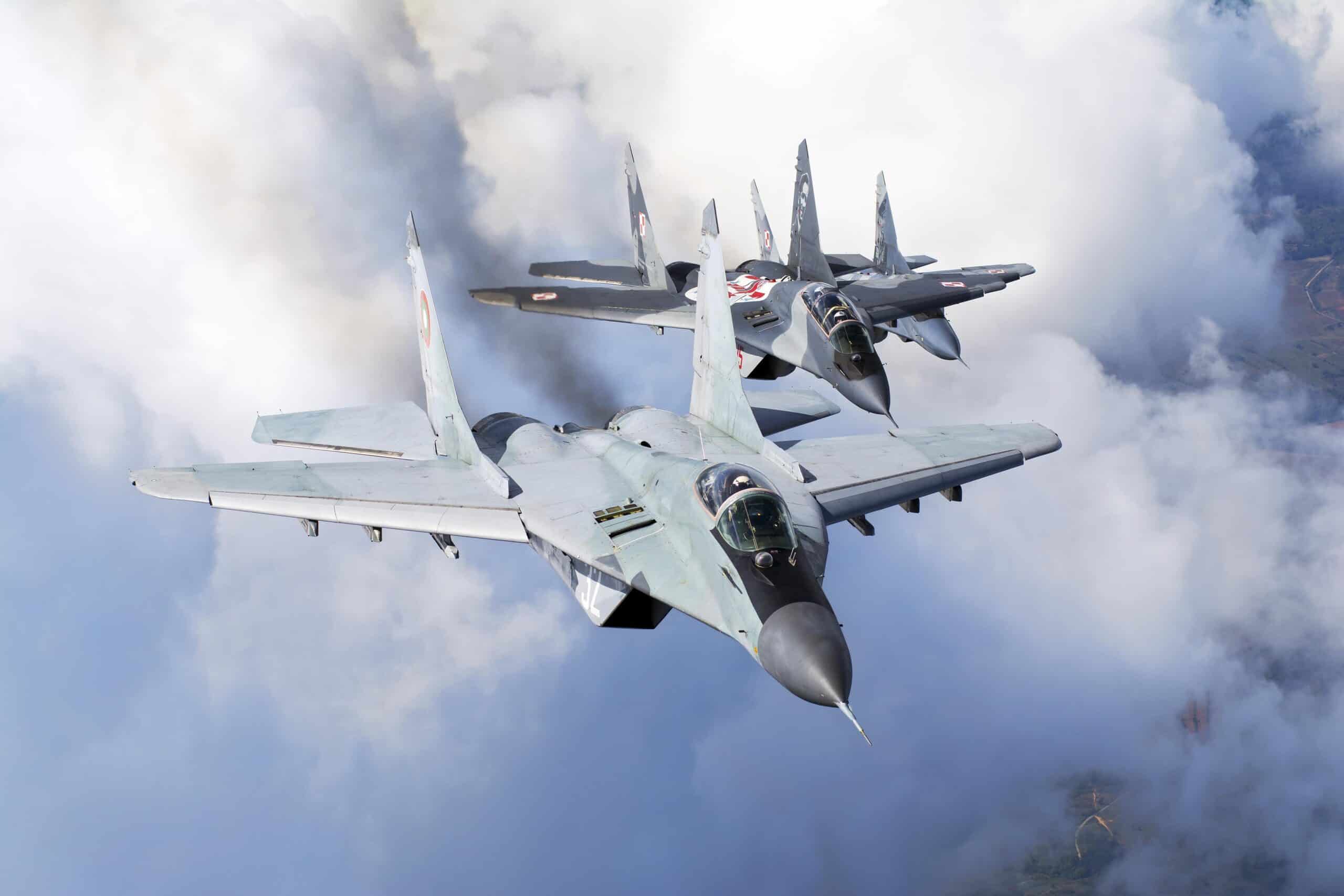
Total European aid to Ukraine eclipsed the contributions made by the United States in 2023. However, after passing another aid package in April 2024, the United States is still the biggest military donor. With future American support uncertain, Europe’s military contributions to Ukraine are more important than ever. In 2022, the United Kingdom and Poland were the early pacesetters in providing arms. More recently, the Nordic countries and Germany have stepped up their contributions. This article will examine what aid Europe has sent to Ukraine, the countries behind the donations, and the long-term implications for Eastern Europe’s security.
Why This Matters
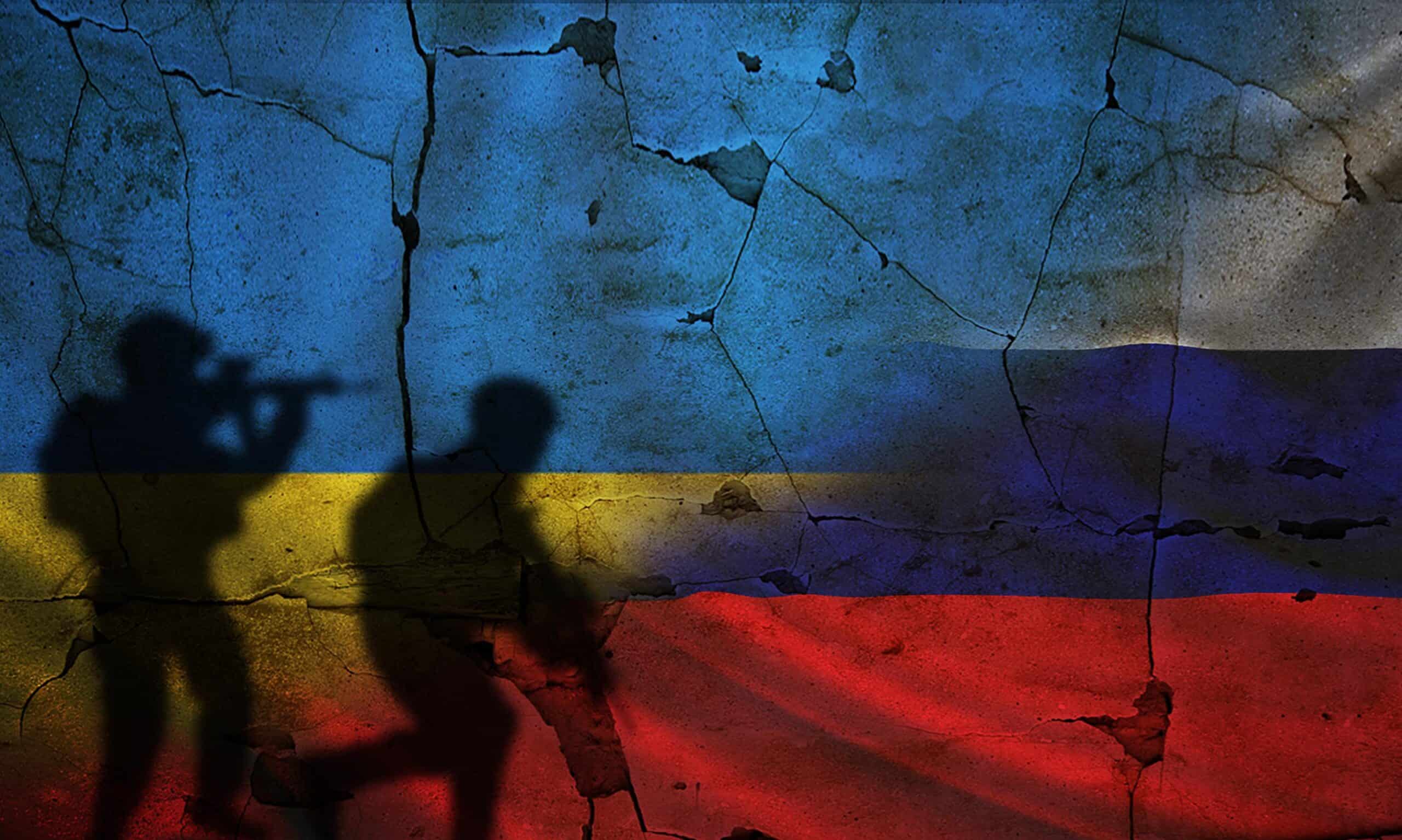
Ukraine cannot continue to hold out against Russia without foreign aid. As Russia pivots to a strategy of attrition, the shortages of ammunition and equipment are keenly felt in Kyiv. What Europe has and is planning to send will have a huge bearing on the war’s outcome.
Tanks
T-72
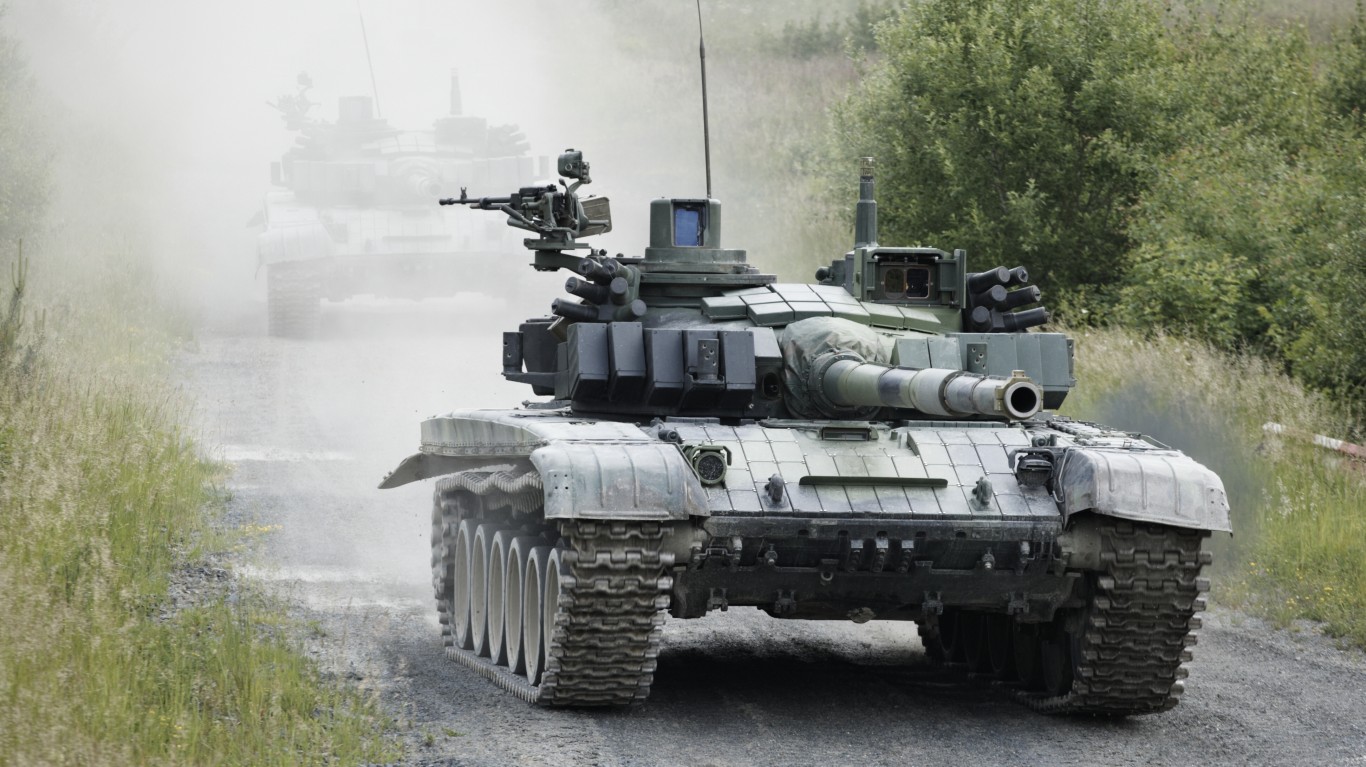
Number donated (including refurbished models): 445
Donor countries: Poland, Netherlands, Czech Republic, Denmark
The T-72 is a Soviet battle tank that entered service in the 1970s, the T-72M was exported to several countries. It is the most widely used tank in the world today and is operated by Russia and Ukraine. Over 1,000 T-72 were left behind in Ukraine when the Soviet Union dissolved in 1991. Though not at the same level as the M1 Abrams or Leopard tanks, it has the advantage of familiarity with Ukraine’s military and requires no additional training. Poland sent the majority of donated T-72s (270) with the Czech Republic another major donor (90).
PT-91 Twardy
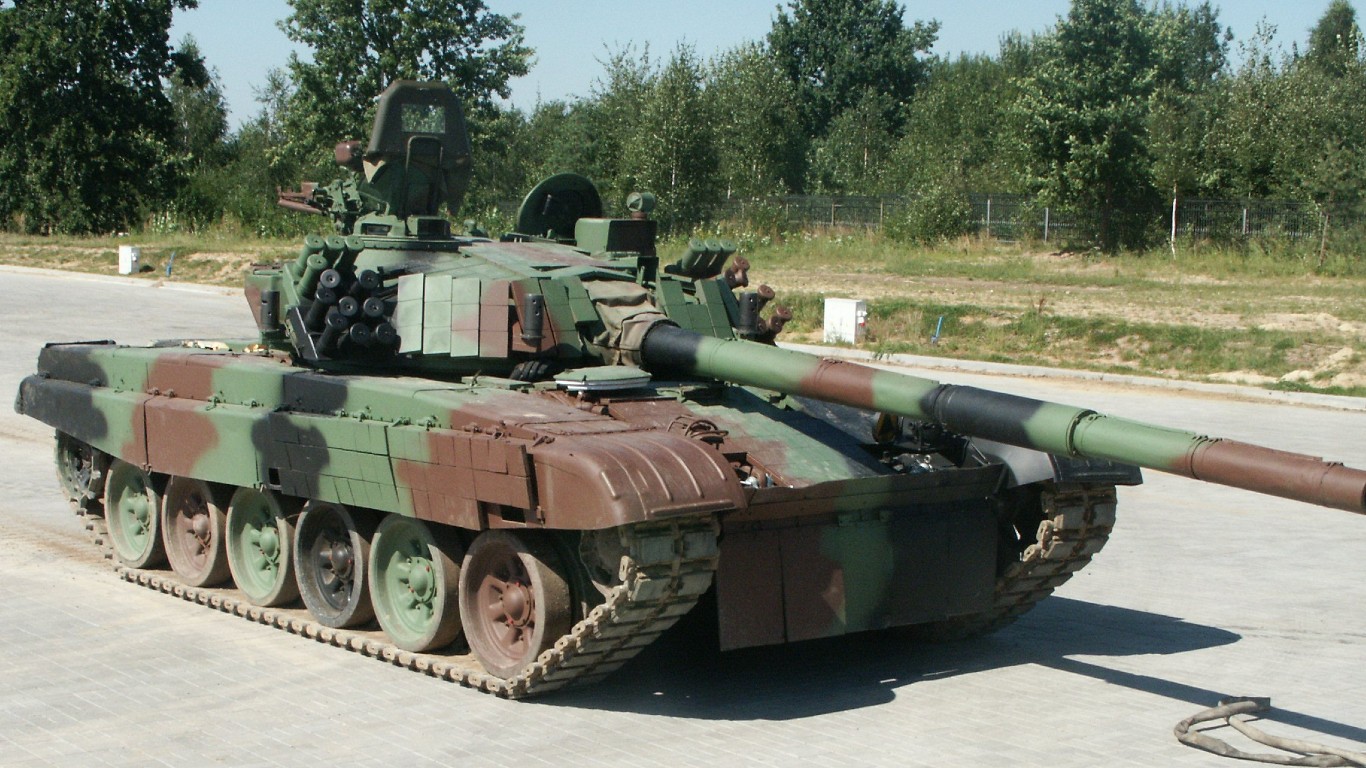
Number donated: 40
Donor country: Poland
The PT-91 Twardy is a Polish battle tank modeled after the T-72M in the 1990s. While quite similar in appearance to the T-72, it is faster and better armored. Poland has pledged to send 60 PT-91s to Ukraine, about 40 have arrived.
Leopard 1A5
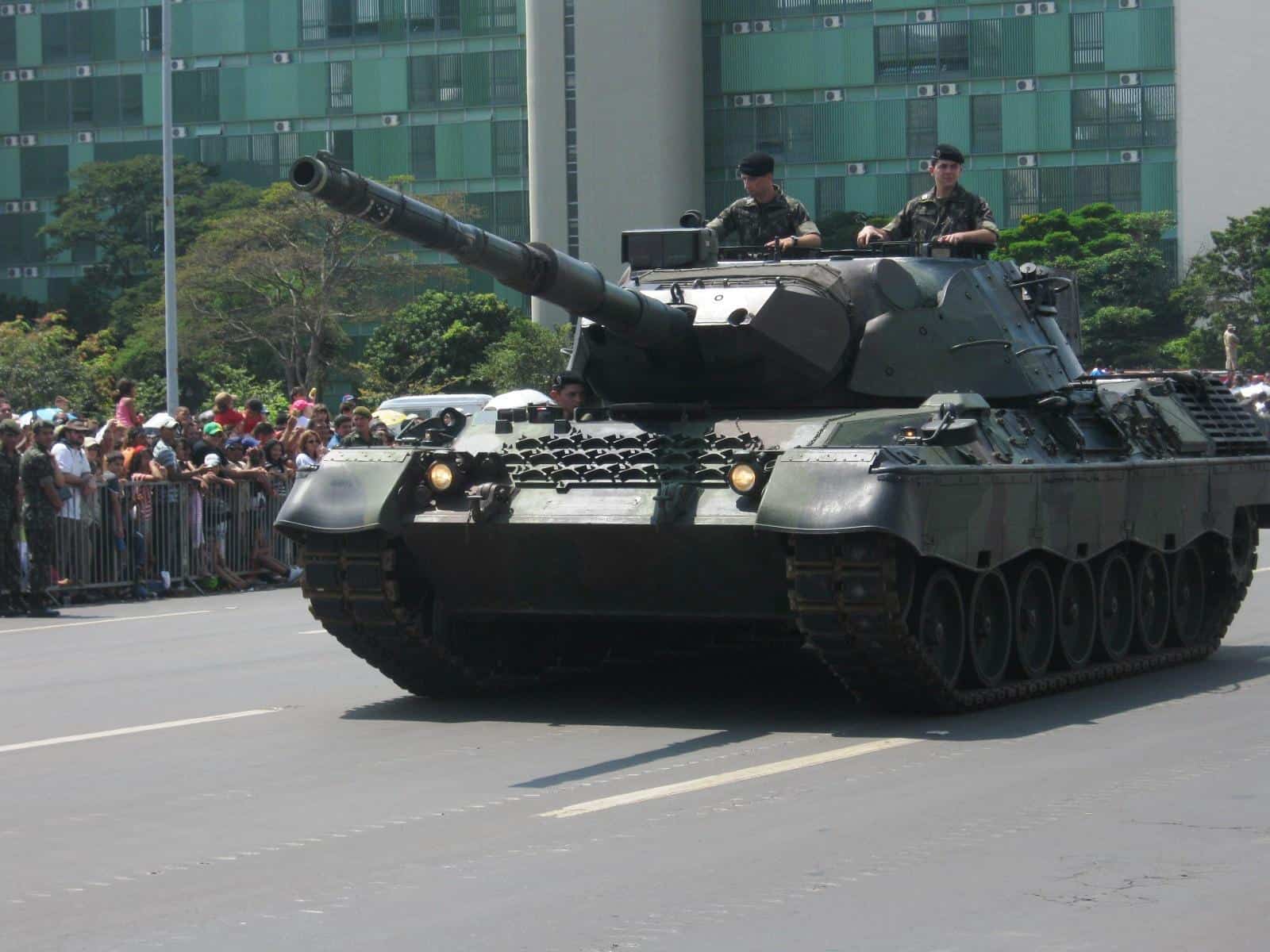
Number donated: 111*
Donor countries: Netherlands, Germany, Denmark
The Leopard 1A5 is an upgraded version of the original Leopard 1, first designed in the 1960s. Highly mobile and accurate, its main shortcoming is its lack of armor. The Netherlands, Denmark, and Germany launched a joint venture to provide up to 200 refurbished Leopard 1 tanks to Ukraine. However, shortages of parts and diplomatic red tape have held up delivery and it’s unclear just how many have made it to Ukraine as official sources in Germany, Denmark, and the Netherlands offer different figures. Some Leopard 1 tanks arrived in such poor condition, they were rejected by Ukraine.
Leopard 2 (all variants)
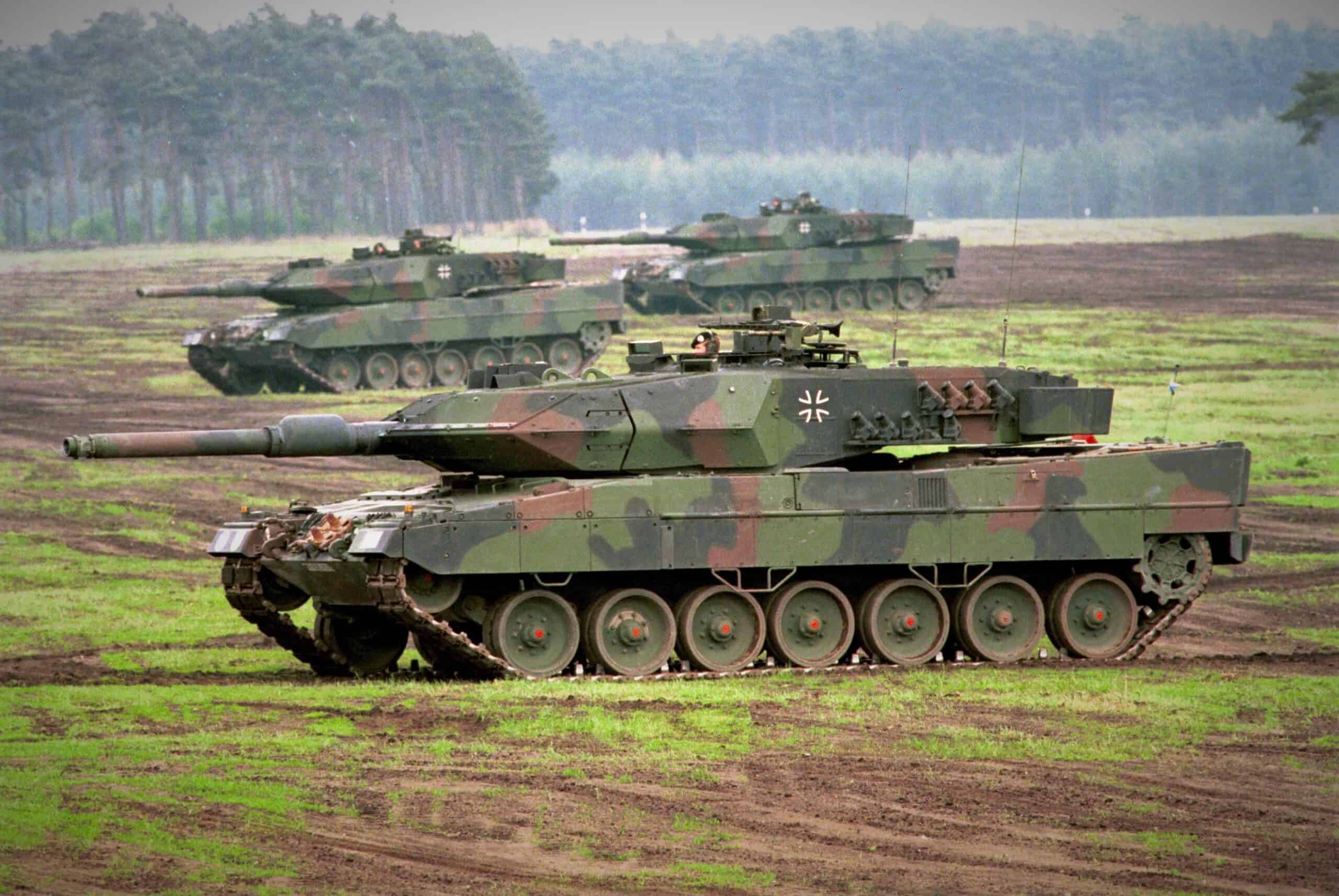
Number donated: 96
Donor countries: Poland, Netherlands, Denmark, Germany, Spain, Sweden, Norway, Portugal
The Leopard 2 is a state-of-the-art German battle tank comparable to the American M1 Abrams and significantly better than anything the Russians have. Germany was hesitant to release the Leopard 2 for fear of escalating the conflict but relented in 2023. As of May 2024, Spain is the top donor of Leopard 2s, albeit of the older A4 variant.
M-55S
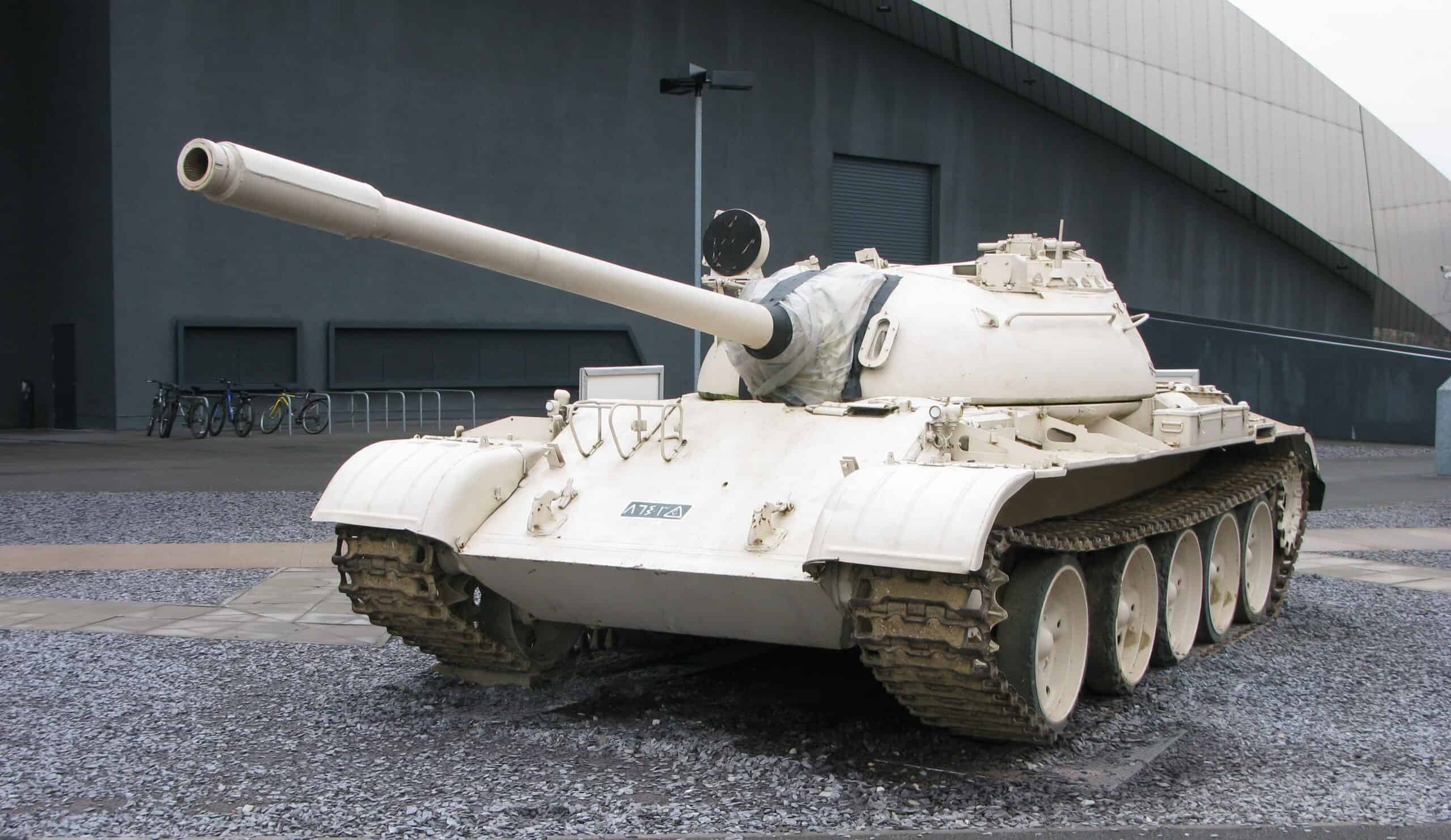
Number donated: 28
Donor country: Slovenia
The M-55S is a modernized version of the old Soviet T-55 tank, one of the most mass-produced tanks in history. Slovenia agreed to send 28 M-55S tanks to Ukraine in September 2022.
Challenger 2
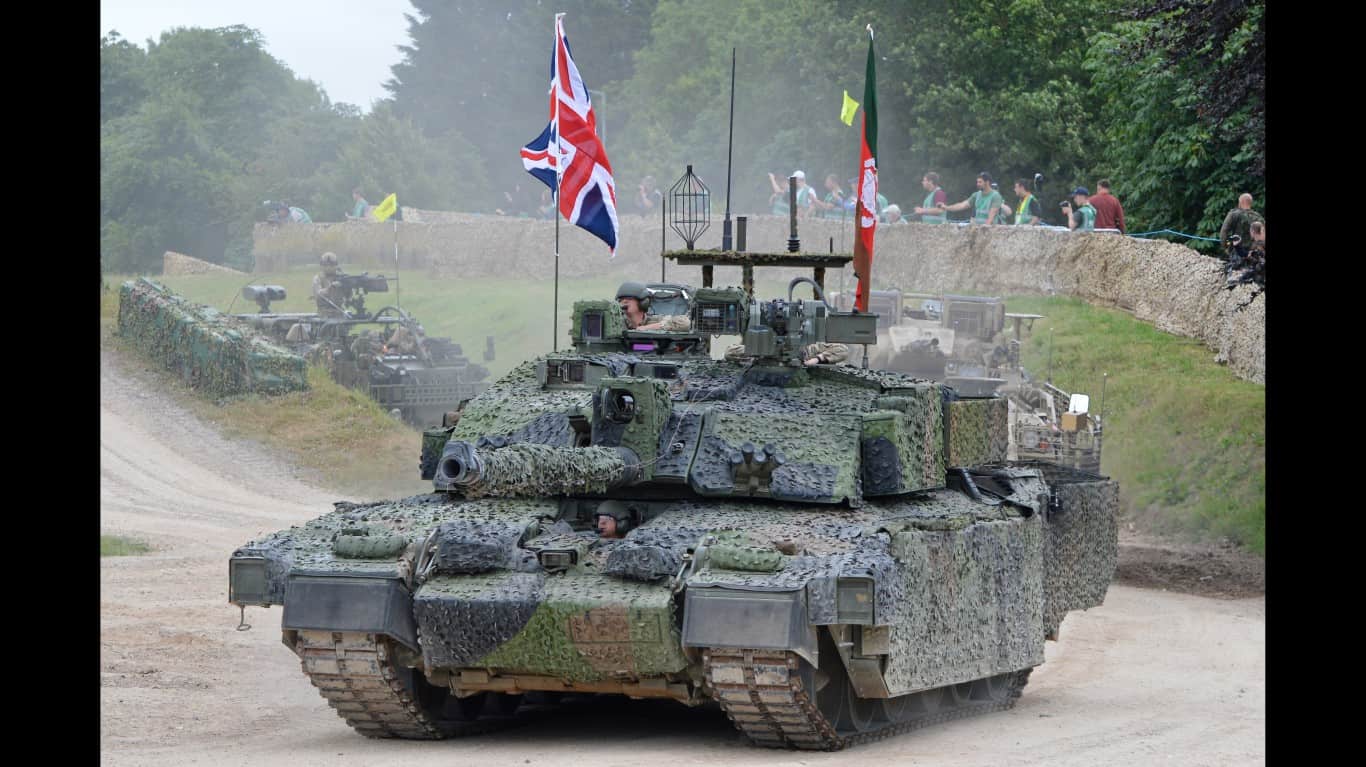
Number donated: 14
Donor country: United Kingdom
In January 2023, Britain was one of the first countries to send Ukraine modern battle tanks when it pledged to send a squadron of Challenger 2s. Known for its toughness and exceptional accuracy, the Challenger 2 had the distinction of never being lost in battle. That distinction ended in September 2023, though the crew survived.
Infantry Fighting Vehicles (IFV)
YPR-765
Number donated: 207
Donor country: Netherlands
The YPR is a Dutch IFV with remote fire capability, meaning that crews can operate the YPR’s weapon systems from within. They have been used extensively in Ukraine and President Volodymyr Zelenskyy specifically requested further shipments of YPRs from the Dutch in May 2024.
Marder
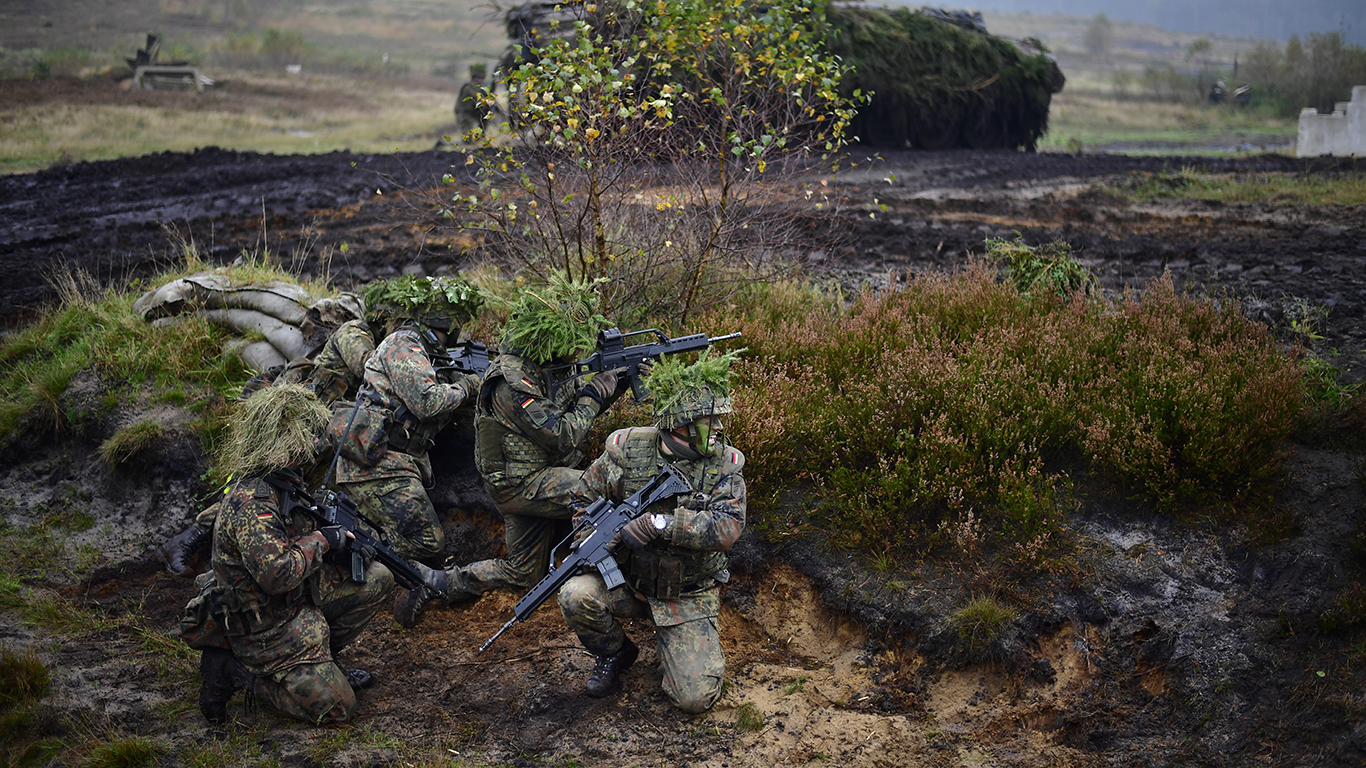
Number donated: 140
Donor country: Germany
The Marder is a German IFV that first entered production in 1971 and has been upgraded several times. The German government reports 120 Marders delivered and another 20 ordered in April 2024.
BMP/BVP (all variants)
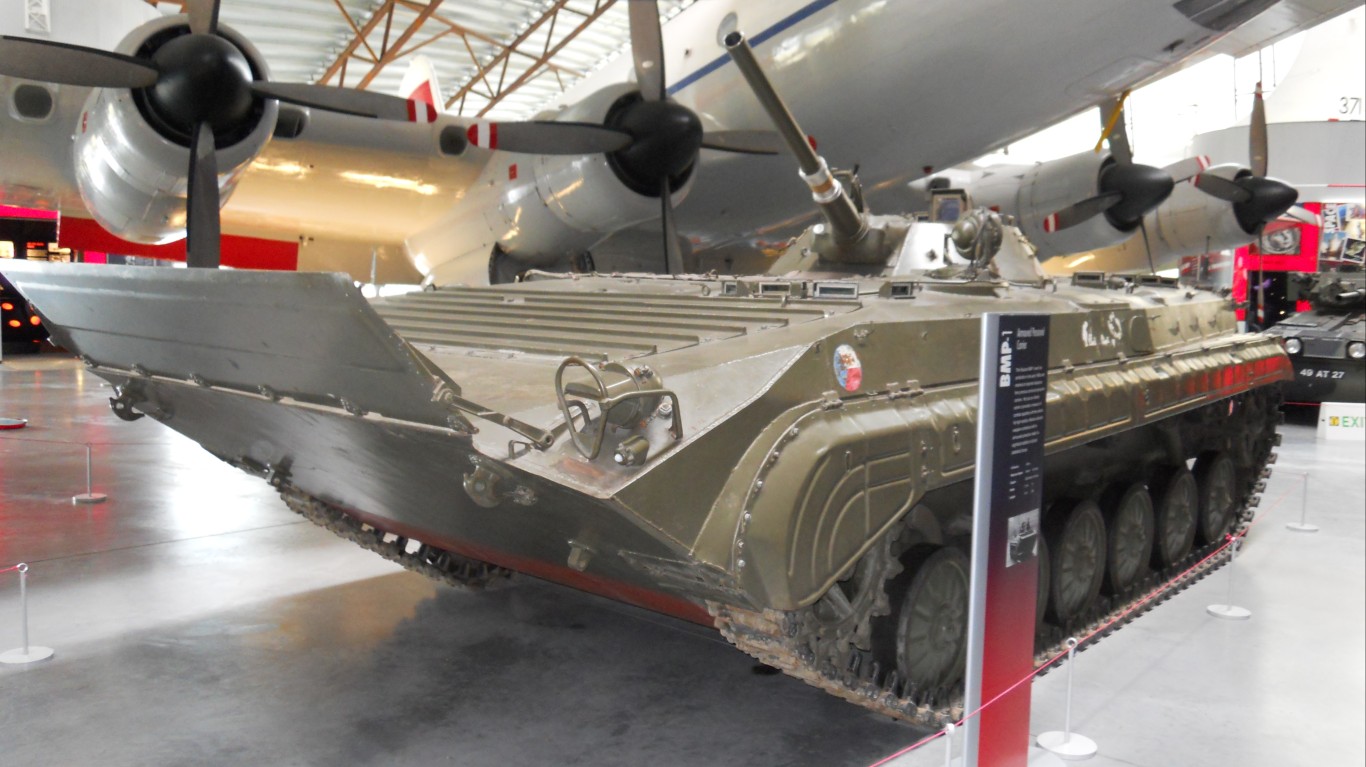
Number donated: 267
Donor countries: Czech Republic, Greece, Denmark, Poland, Slovakia, Slovenia
The Soviet BMP stands for Boyevaya Mashina Pyekhoty which means “infantry fighting vehicle” in Russian. It was one of the first IFVs ever built in the 1960s and is still in service in both Russia and Ukraine. The Czech Republic, Poland, and Slovakia are former Warsaw Pact countries with large stockpiles of BMPS to pass on to Ukraine. They might not be cutting edge but they’re still serviceable and, just like the T-72, already familiar to Ukraine.
CV90
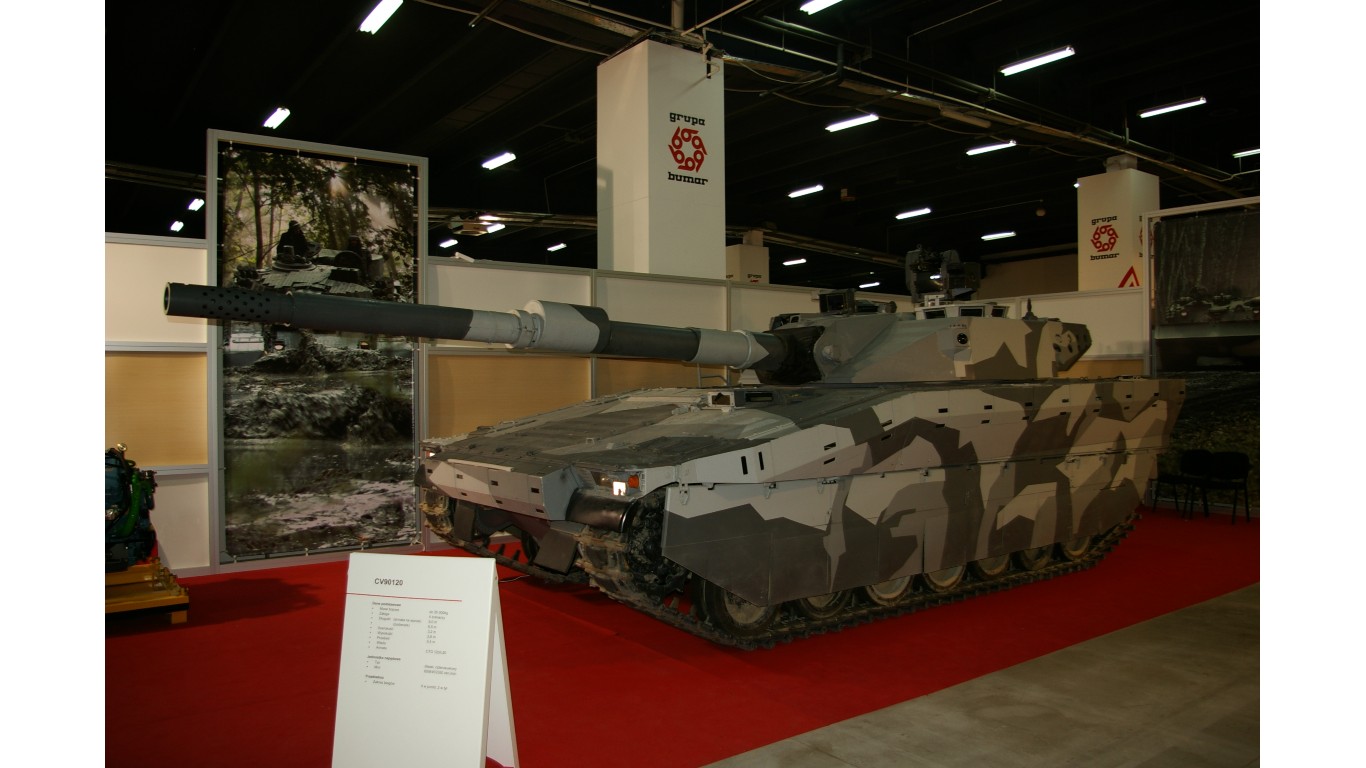
Number donated: 50
Donor country: Sweden
The CV90 (combat vehicle) is a Swedish IFV and one of the most advanced IFVs used in the conflict. As well as versatility in its load-outs, it sports Barracuda camouflage to mask its thermal signature, giving it a major edge at night and in poor visibility. Sweden sent the initial batch in 2023 but plans are afoot for many more in a joint production.
Multiple Launch Rocket Systems (MLRS)
RM-70
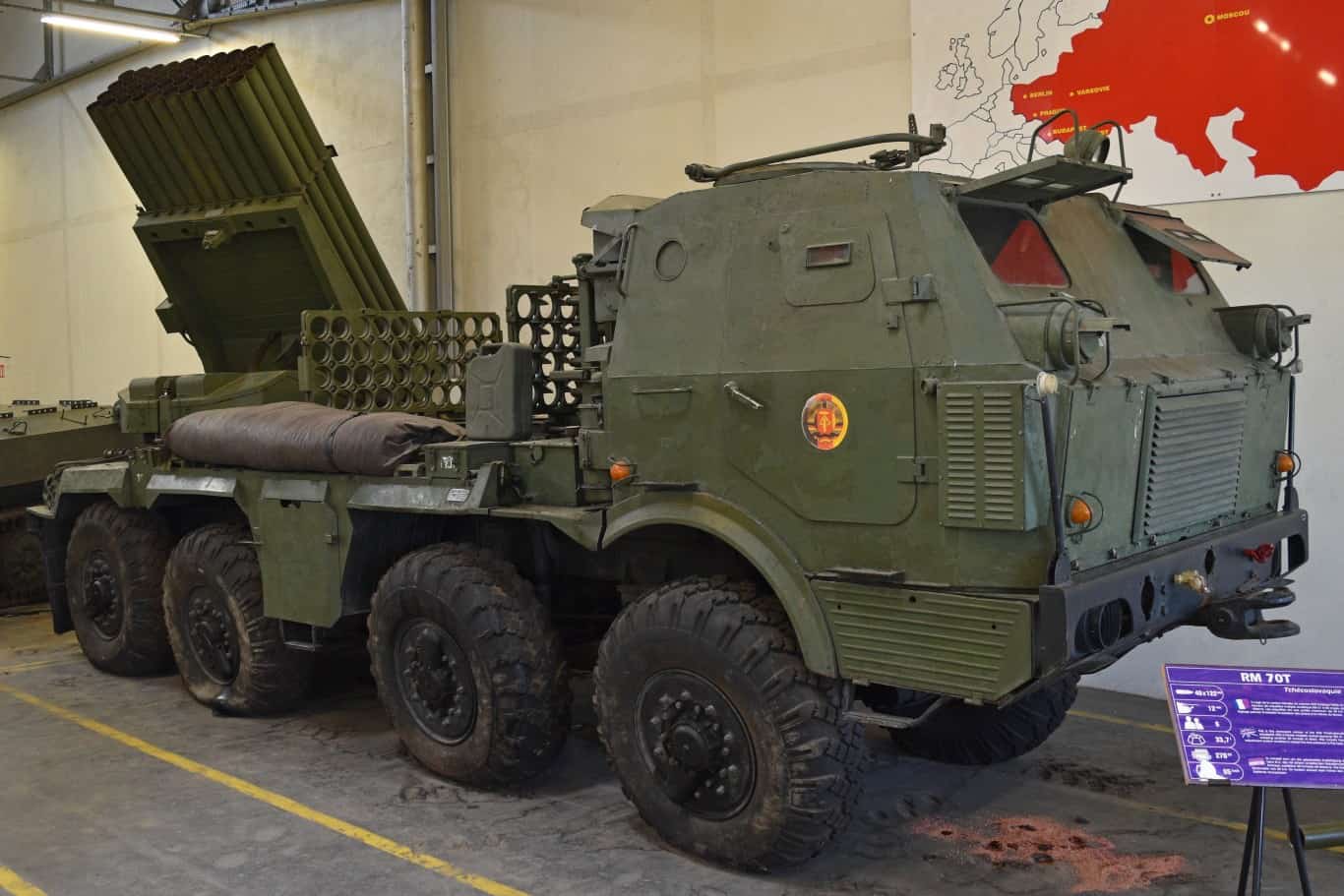
Number donated: 12
Donor Country: Czech Republic
The RM-70 is a larger Czech version of the Soviet BM-21 Grad. It can hold up to 40 rockets fired as a volley or individually. Russia claimed Ukraine attacked Belgorod, a Russian city situated near the border, with RM-70 rockets, killing 15.
M270
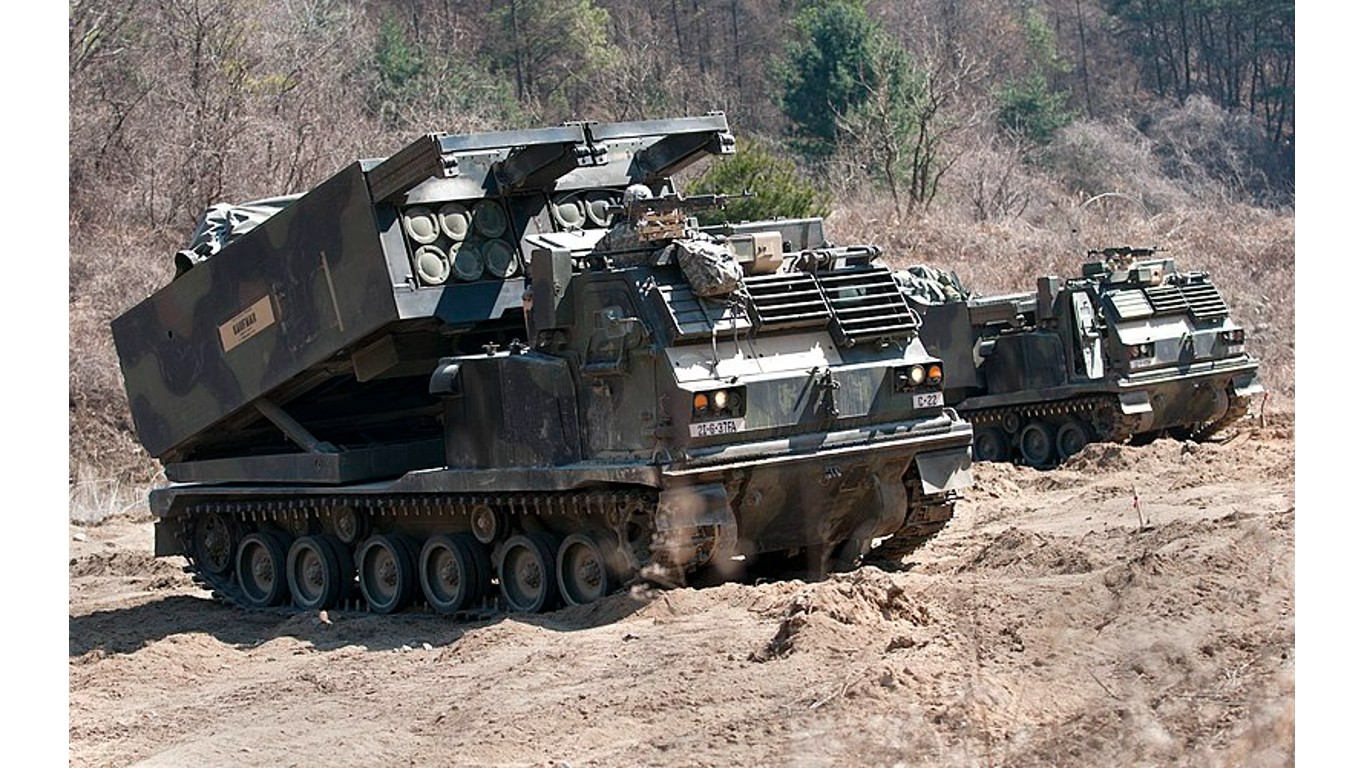
Number donated: 23
Donor countries: Norway, United Kingdom, France, Italy
The M270 is a mobile MLRS that uses “shoot and scoot” tactics – firing a devastating barrage and then moving to another location to minimize the risk of counterfire. It has proven a potent weapon in a conflict dominated by artillery.
Howitzers
M109
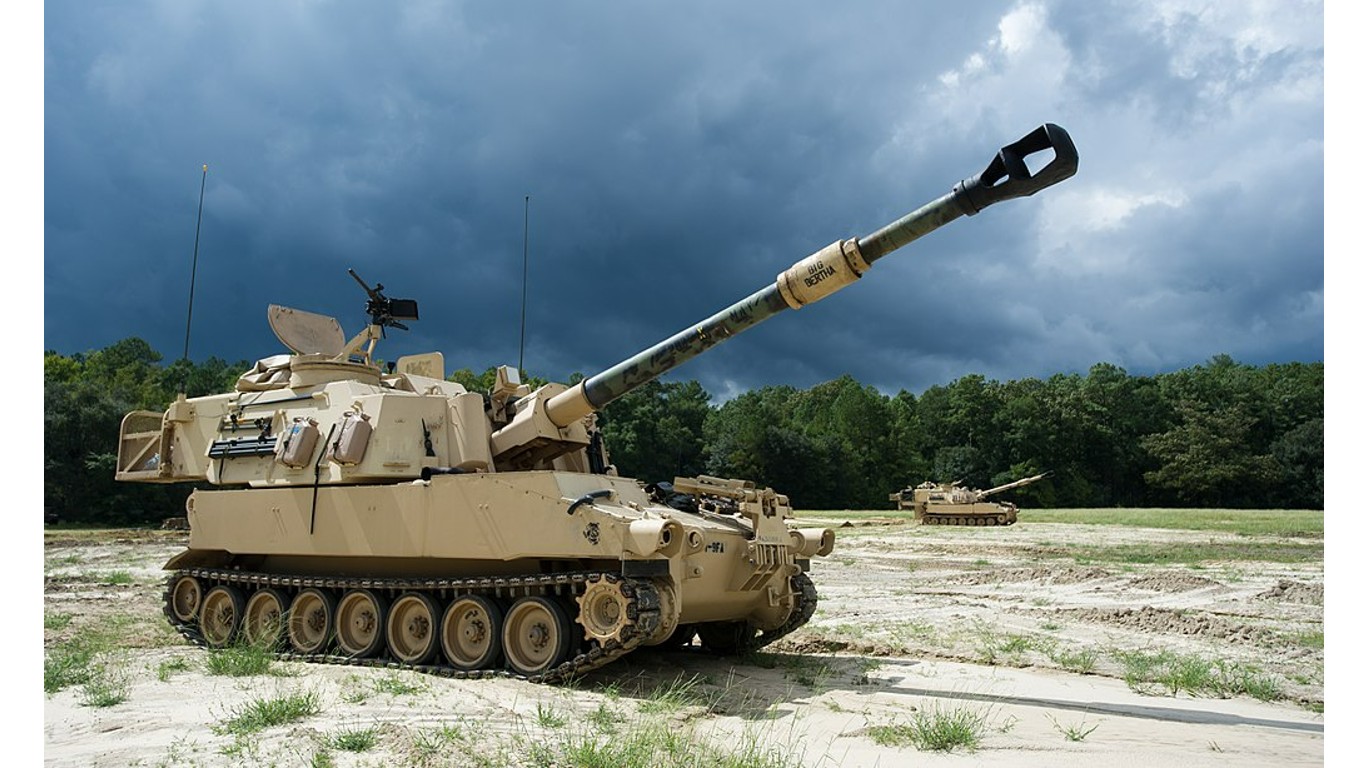
Number donated: 116
Donor Countries: United Kingdom, Italy, Norway, Latvia
The M109 is an American self-propelled howitzer widely used by militaries across the world. The Italian variant, the M109L is a hit with Ukrainian crews thanks to its reliability, mobility, and accuracy.
AS90
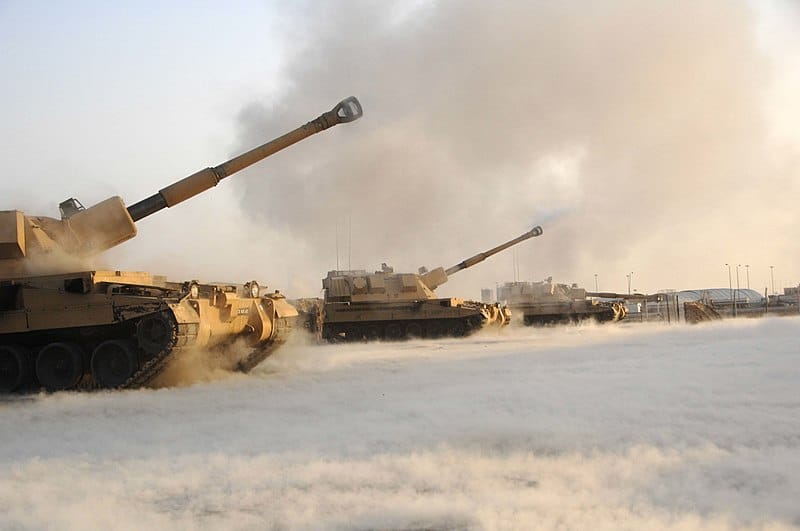
Number donated: 50
Donor Country: United Kingdom
The AS-90 (artillery system) is a British self-propelled howitzer introduced in the 1990s to replace the M109. It has greater range and accuracy than comparable Russian self-propelled artillery. Britain provided 50 AS-90s and training in July 2023.
PzH-2000
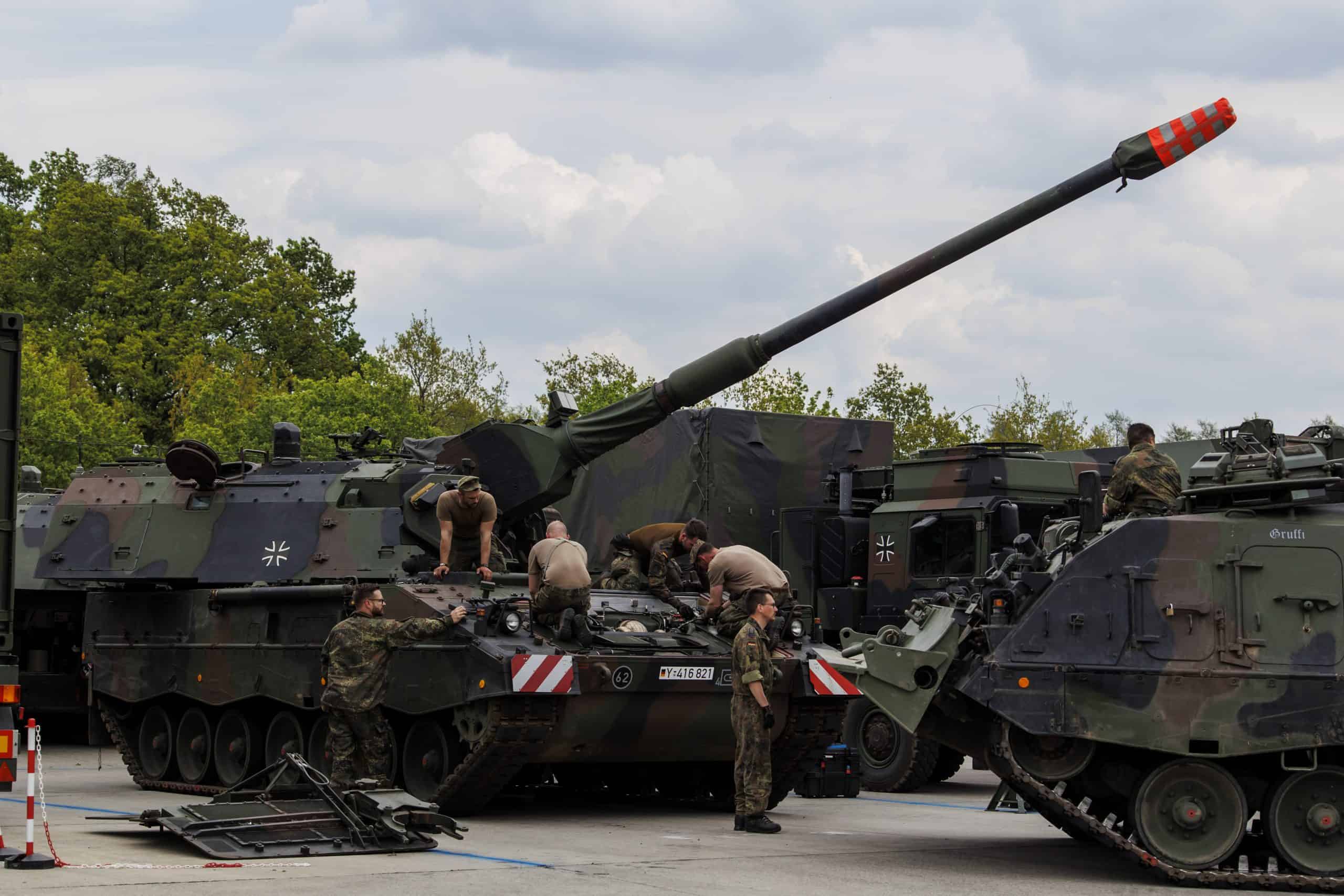
Number donated: 46
Donor Countries: Italy, Germany, Netherlands
The Panzerhaubitze 2000 (“armored howitzer”), abbreviated as PzH-2000 is a German self-propelled howitzer. The PzH-2000 is mobile and has excellent range but has run into major mechanical problems in Ukraine. Simply put, the PzH-2000s are firing in Ukraine far more often than designed, resulting in major wear and tear. A facility in Slovakia handles repairs.
Aircraft
MiG29
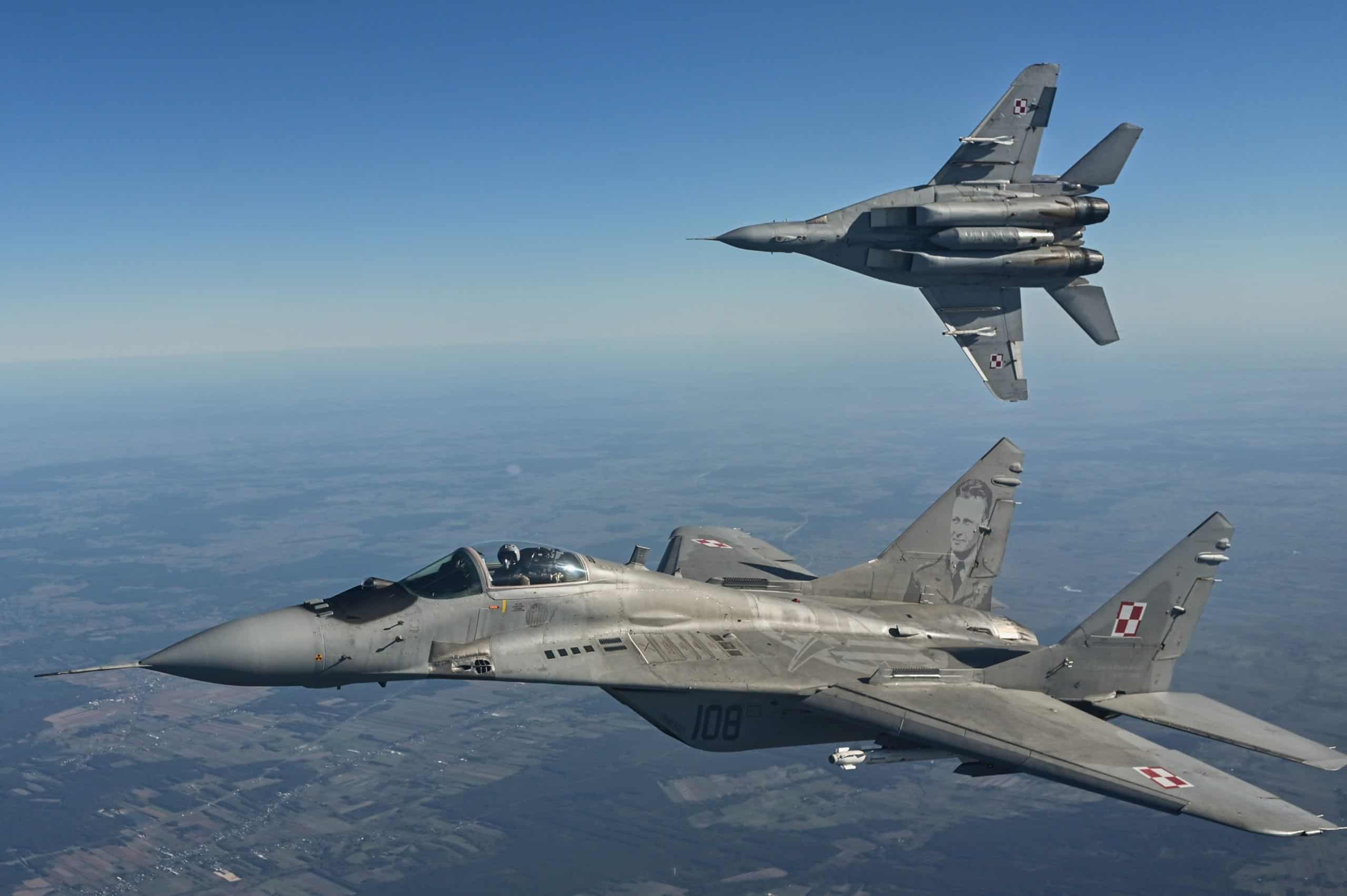
Number donated: 24
Donor countries: Poland, Slovakia
The Mikoyan MiG-29 is yet another Soviet relic that’s proving its worth in Ukraine. Its main shortcoming – a lack of fuel capacity – is not a problem for Ukraine as it is being used for shot-range missions over home soil. A handful of MiGs leftover from the Soviet Union’s collapse have been supplemented by donations from Poland and Slovakia.
F-16
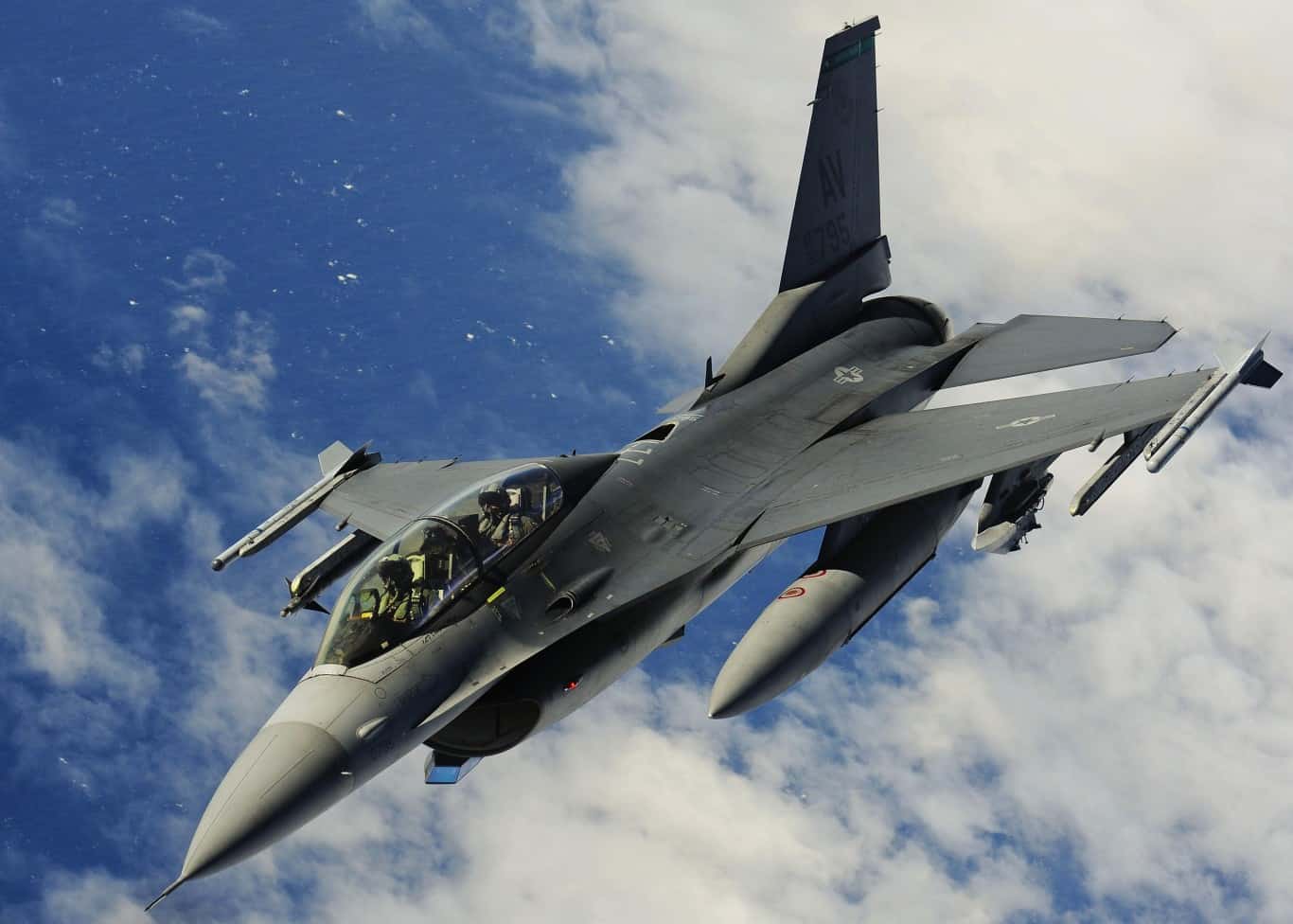
Number donated: 80
Donor countries: Belgium, Denmark, Netherlands, Norway
Modern aircraft will finally take to the skies above Ukraine in the summer of 2024 thanks to a coalition of European NATO members. European states hesitated to provide F-16s over concerns that their use could escalate the conflict with Russia. Accordingly, Belgium’s donation of 30 F-16s is conditional on the jets only being used in Ukrainian airspace.
Training Ukrainian pilots accustomed to Soviet-era aircraft to effectively fly the F-16 has been another challenge. If used to their full potential, the influx of F-16s will greatly boost Ukraine’s war effort.
Conclusion
As uncertainty over future American aid to Ukraine mounts, European nations have stepped up support to bridge the gap. The result is a hodgepodge of dated but still useful Soviet-era weapon systems and modern firepower. Ukraine’s neighbors and former Warsaw Pact allies helped bolster Ukraine’s defenses with older but familiar arms like the T-72, RM-70, and MiG-29. Britain, Germany, Benelux, and the Nordics brought in more advanced weapons. However, those cannot be used immediately as they require extensive training to be used effectively. European powers have provided badly needed help but it remains to be seen if it will be enough.
Take Charge of Your Retirement In Just A Few Minutes (Sponsor)
Retirement planning doesn’t have to feel overwhelming. The key is finding expert guidance—and SmartAsset’s simple quiz makes it easier than ever for you to connect with a vetted financial advisor.
Here’s how it works:
- Answer a Few Simple Questions. Tell us a bit about your goals and preferences—it only takes a few minutes!
- Get Matched with Vetted Advisors Our smart tool matches you with up to three pre-screened, vetted advisors who serve your area and are held to a fiduciary standard to act in your best interests. Click here to begin
- Choose Your Fit Review their profiles, schedule an introductory call (or meet in person), and select the advisor who feel is right for you.
Why wait? Start building the retirement you’ve always dreamed of. Click here to get started today!
Thank you for reading! Have some feedback for us?
Contact the 24/7 Wall St. editorial team.
